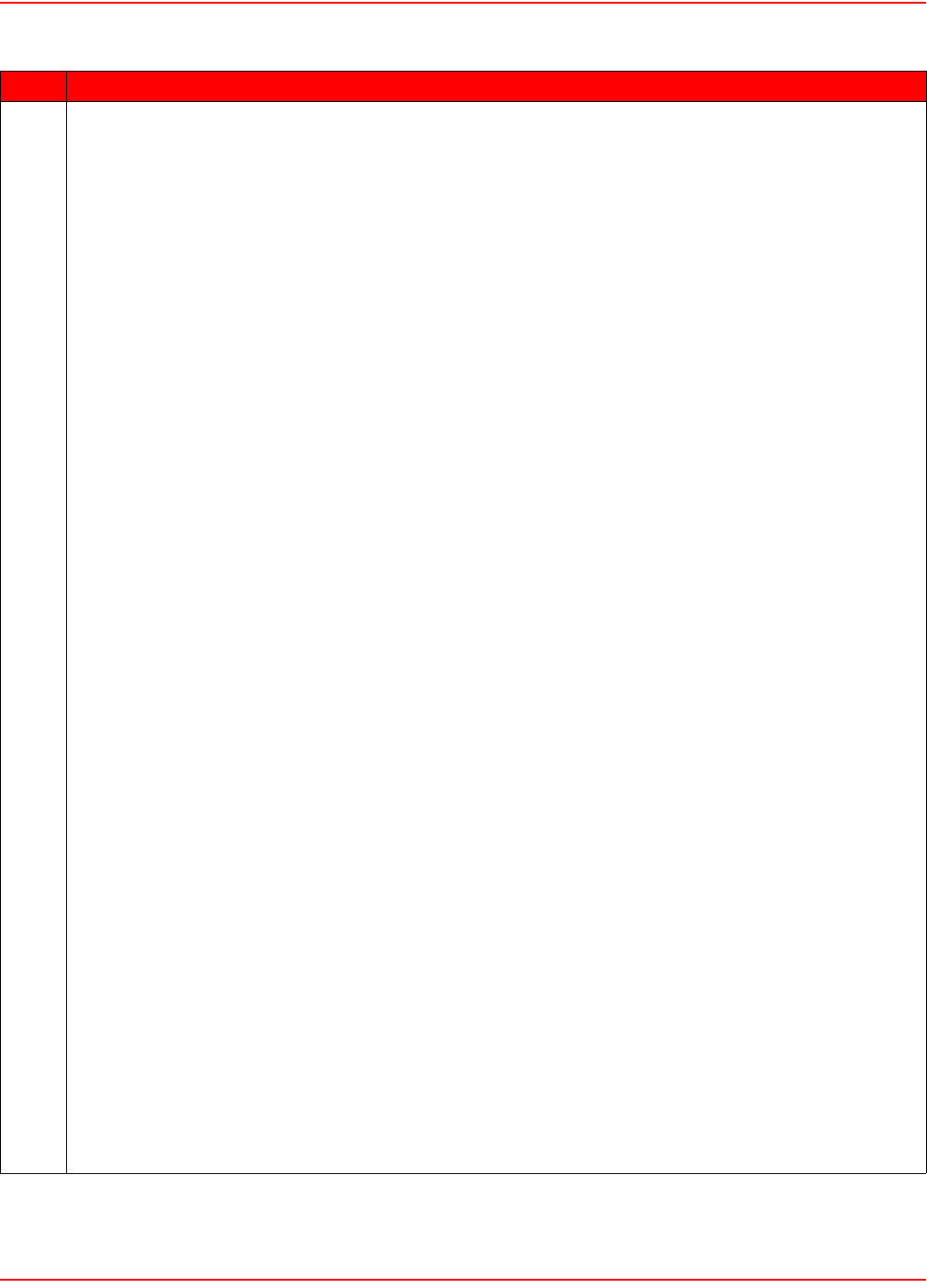
Appendix A: Command Line Interface Access April 14, 2006
A-14 MM70xG2-UM-03
1
(cont.)
• Peak Cell Rate
Enter 5 then type the QoS Peak Cell Rate (PCR) value supplied by your service provider. If you are
not provided a PCR value, use the default. PCR is the maximum rate at which data is transferred on
the line and measured in ATM cells per second. The valid range is 1-5500 cells per second. The
default PCR is 5500.
• Sustain Cell Rate
Enter 6 then type the QoS Sustainable Cell Rate (SCR) value supplied by your service provider. Use
for CBR, VBR-rt, and VBR-nrt ATM QoS. SCR is the average rate at which ATM cells are
transferred, measured in cells per second. The SCR must be less than the PCR. The valid range is
1-5500 cells per second.
• Maximum burst size
Enter 7 then type the QoS Maximum Burst Size (MBS) value supplied by your service provider. Use
with VBR-rt and VBR-nrt QoS. MBS is the maximum number of cells that can be transmitted at the
peak cell rate. The MBS rate must be equal to or less than the PCR. The default MBS is 0.
• LLC header mode
Enter 8 then select either 1 to Enabled or 2 to Disabled the LLC header. The default is Disabled.
Disabled indicates that VCMux encapsulation is used. Enabled indicates that LLC/Snap
encapsulation is used.
• WAN IP Address
Enter 9 then type the IP address is dynamically served by the service provider for this session.
When the modem has received the IP address for this session, it displays the value in this field.
Also, the IP address dynamically received for the first PPP session set up is assigned as the default
gateway. The default is 0.0.0.0.
If the service provider does not dynamically provide an IP address, they can give you a static IP
address that you can enter in this field.
• WAN Network Mask
Enter 10 then type the subnet mask is dynamically served by the service provider for this session.
The default subnet mask for the session is 0.0.0.0.
If the service provider does not dynamically provide a subnet mask, they can give you a subnet
mask value that you can enter in this field.
• RIP Accept Mode
Type 11 then select one of the following:
1—No RIP
2—RIP Version 1
3—RIP Version 2
4—RIP Version 1 & 2 (default)
• RIP Send Mode
Type 12 then select one of the following:
1—No RIP
2—RIP Version 1
3—RIP Version 2 (default)
4—RIP Version 1 & 2
Step Action
